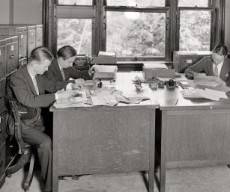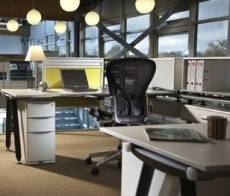June 25, 2014
Workplace wellbeing increasingly incorporated into office design
 More UK companies are proactively designing their workspaces with wellbeing in mind as the health and wellbeing of office workers soars up the list of business priorities. This is according to Bostjan Ljubic, the newly appointed head of Steelcase in the UK and Ireland, who believes the economic impact of employee wellbeing, plus greater understanding of the issue is now propelling companies to develop and enhance their engagement with their workforces, as they increase their post-recession drive to attract and retain high quality staff. “The issue of wellbeing has developed very significantly in recent times,” said Ljubic. “Businesses that are focusing clearly on the issue are doing so because they have identified the potential emotional, financial and competitive advantage. The mountain of research on wellbeing points very clearly to it being in a company’s interests to take the matter seriously.” (more…)
More UK companies are proactively designing their workspaces with wellbeing in mind as the health and wellbeing of office workers soars up the list of business priorities. This is according to Bostjan Ljubic, the newly appointed head of Steelcase in the UK and Ireland, who believes the economic impact of employee wellbeing, plus greater understanding of the issue is now propelling companies to develop and enhance their engagement with their workforces, as they increase their post-recession drive to attract and retain high quality staff. “The issue of wellbeing has developed very significantly in recent times,” said Ljubic. “Businesses that are focusing clearly on the issue are doing so because they have identified the potential emotional, financial and competitive advantage. The mountain of research on wellbeing points very clearly to it being in a company’s interests to take the matter seriously.” (more…)























June 26, 2014
The debate about open plan offices is not helped by its use of stereotypes
by Mark Eltringham • Comment, Furniture, Workplace, Workplace design
(more…)